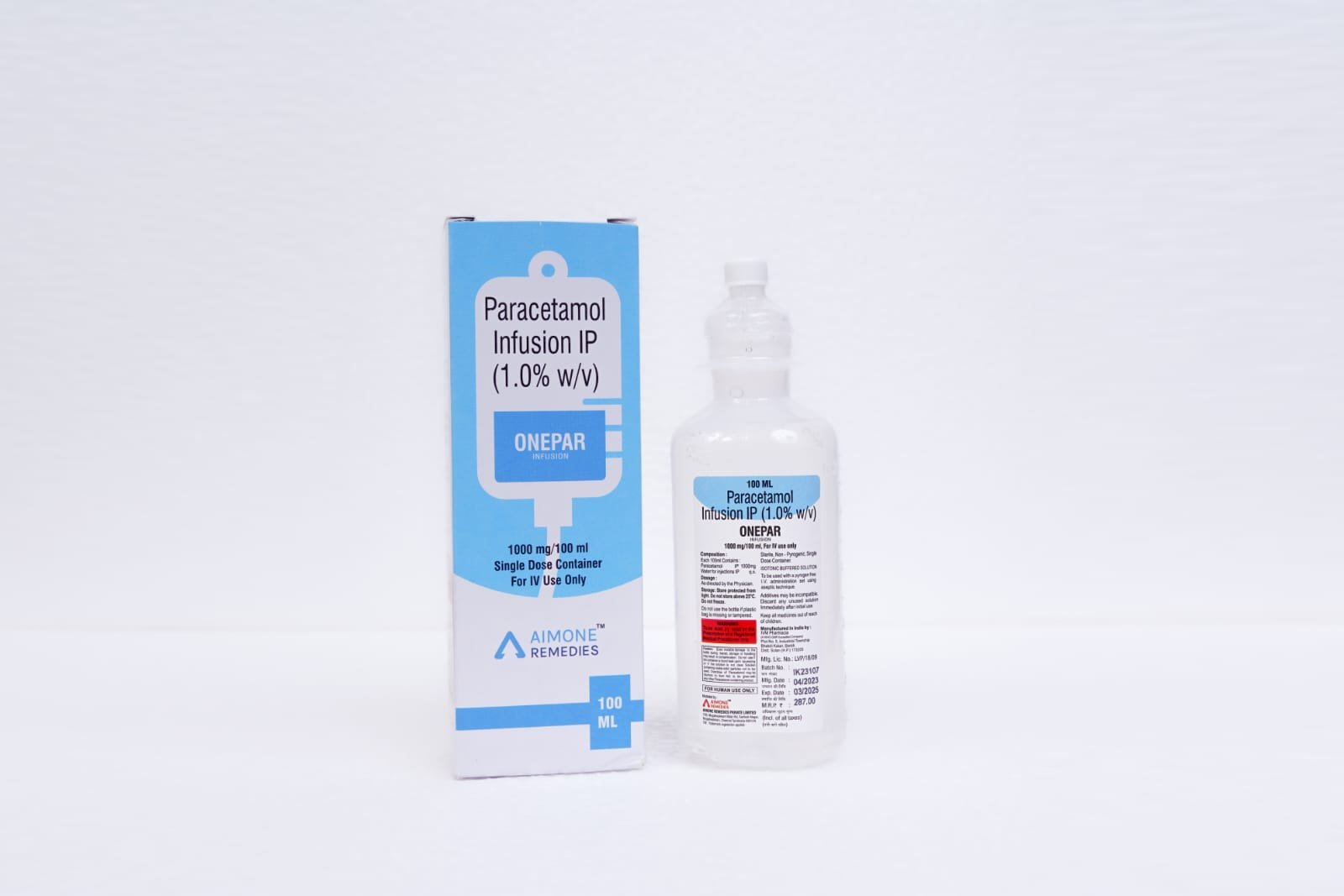
ONEPAR IV
Paracetamol 1g IV Injection
Paracetamol 1g IV Injection (also known as intravenous paracetamol) is a formulation of paracetamol (acetaminophen) designed for intravenous (IV) administration. It is commonly used in clinical settings for the treatment of pain and fever in patients who are unable to take oral medication or need rapid relief.

Indications
Pantoprazole Injection is typically used for the treatment of conditions related to excessive stomach acid production. Some of the primary indications include:
Pain management:
It is used for moderate to severe pain, such as pain following surgery, trauma, or conditions like osteoarthritis and musculoskeletal pain.Fever reduction:
Paracetamol 1g IV Injection is also used to reduce fever, especially in patients who cannot take oral medications.

Dosage and Administration
Adults:
The typical dose for adults is 1 gram administered intravenously.- The 1g dose is generally given over 15 minutes as an IV infusion.
- For some patients, the dose may be repeated every 4 to 6 hours, but it should not exceed 4 grams per day (i.e., 4 doses of 1g).
Peadiatric dose
Dosing for children depends on age and weight, and a healthcare provider will determine the appropriate dosage.- Injection site reactions: Pain, swelling, or redness at the site of the injection.
- Allergic reactions: Although rare, reactions such as rashes, itching, or anaphylaxis can occur.
- Liver damage: Paracetamol is metabolized in the liver, and excessive doses or prolonged use can lead to liver toxicity, especially in patients with pre-existing liver conditions or those who consume alcohol regularly.
- Liver function: Caution should be used in patients with liver impairment or those with a history of alcohol abuse, as paracetamol is metabolized in the liver. Overdose can cause severe liver damage.
- Renal function: Patients with renal problems should be monitored.
- Interactions: Paracetamol can interact with other medications, including anticoagulants like warfarin. Regular monitoring may be needed in patients on chronic anticoagulation therapy.
Side Effects
Common side effects include:

